

|
In this issue we introduce two books on Sri Aurobindo’s epic poem Savitri, a book of essays by Manoj Das, the second volume of the compendium of documents on the Alipore Bomb Trial, and a bilingual tome of essays in English, with Telugu translations, broaching some of the major ideas in each of the first fifteen volumes of the Sri Aurobindo Birth Centenary Library. The English of Savitri: Part 4 presents a detailed examination of all four cantos of Book Ten, The Book of the Double Twilight. In the third canto, “The Debate of Love and Death”, Death expresses the universal state of mind, a state of rugged disbelief anchored in ignorance and darkness. Savitri counters every argument, in the process revealing her divinity and its conquest over death, and reclaiming Satyavan’s soul. Next, a series of talks on Savitri, given by M. P. Pandit between August 1992 and January 1993, appear in The Book of the Traveller of the Worlds (Part I). The talks form a commentary on the first six cantos of Book Two, where Aswapati explores the subtle-physical, lower, and higher vital worlds. Apart from his works of fiction, author Manoj Das has written essays and delivered talks on a range of topics. Of Mystics and Miracles and other Essays is a collection of his essays representative of this range: from literature and education, mythology, mysticism, and yoga to profiles of eminent figures and critical commentary on social issues. In one essay, “Redefining the Freedom of the Mind: How Free are the Writers of India Today?”, he writes of India’s deep roots on this question of freedom:
Alipore Bomb Trial 1908–1910, the second of two volumes bringing to light all the documents related to that trial, deals with the arguments presented in the Sessions Court and the High Court and the judgements rendered in both. As in the previous volume, the editor begins here with an introduction, giving a background on justice in colonial India. The epilogue looks at some of the measures taken by the British Government in the aftermath of the verdicts. Written as an introduction to Sri Aurobindo’s writings as they appear in the Sri Aurobindo Birth Centenary Library, Sri Aravinda Sarit Sagara—Part I covers the first fifteen volumes of that edition. The author has written a set of three essays on each of the volumes. For example, for Essays on the Gita (Volume 13 in the SABCL and Volume 19 in the Complete Works of Sri Aurobindo), the author writes her first essay on “The Human Background”, pointing out the importance of the central battlefield scene as a powerful backdrop to give authenticity to the teaching, applying yoga and spirituality to overcome a practical crisis in one’s life. Her second essay is “Sri Aurobindo’s Vasudeva-darsana”, and the third is titled “The Supreme Secret”, looking at the Gita’s influence on Sri Aurobindo’s own inner awakening to Krishna, whom he described as “the supreme figure of the intensest Indian religion of love, Sri Krishna, the All-blissful and All-beautiful”. Closing out this issue are a pictorial album, Auroville: The City the Earth Needs, a collection of some of the photographs and texts displayed at the Ashram’s Exhibition Hall to mark Auroville’s fiftieth anniversary in 2018, and K. D. Sethna, a short work highlighting Sethna’s life and work as part of the Sahitya Akademi’s Makers of Indian Literature series.
| |||||||||||||||||||||||||||||||||||||||||||||||||||||||||||||||||||||||||||||||||||||
| |||||||||||||||||||||||||||||||||||||||||||||||||||||||||||||||||||||||||||||||||||||
ENGLISH | |
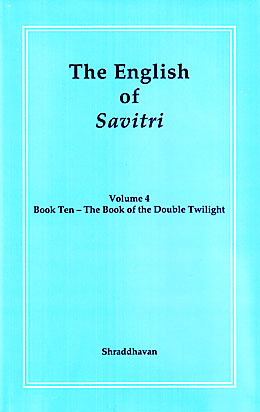 | The English of Savitri: Part 4 (Book Ten – The Book of the Double Twilight)
Comments on the language of Sri Aurobindo's epic Savitri — Shraddhavan ISBN: 978-93-82474-18-0 Publisher: Savitri Bhavan, Auroville Binding: Hard Cover Pages: 334 Price: Rs 550 |
Continuing from the previous book in this series, this volume, also based on transcripts of classes held at Savitri Bhavan, begins with a summary of Book Nine—The Book of Eternal Night before proceeding to a detailed examination of all four cantos of Book Ten. The author’s aim remains the same: to read the poetry according to the natural rhythms of English speech and to gain a better understanding and appreciation of the poem by explaining Sri Aurobindo’s vocabulary, sentence structure, and imagery. She also notes that the Mother took a particular interest in Book Ten, even translating into French a section from Canto Three, “The Debate of Love and Death”. In this debate with Death, Savitri’s replies to his arguments reveal a higher Truth that dissolves the darkness of ignorance and death. | |
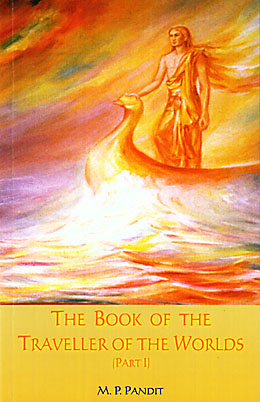 | The Book of the Traveller of the Worlds (Part 1)
Talks on Sri Aurobindo's Savitri (Book Two) — M. P. Pandit ISBN: 978-81-7509-137-5 Publisher: Dipti Publications, Pondicherry Binding: Soft Cover Pages: 325 Price: Rs 240 |
These talks, which cover the first half of the second book of Savitri, were given between August 1992 and January 1993. Aswapati, having achieved his own spiritual self-fulfilment as an individual, realises that the imperfect world around him has a higher destiny and undertakes a journey to discover all the planes of consciousness. In this commentary on the first six cantos of the Book of the Traveller of the Worlds, Aswapati, now acting as a representative of the entire human race, explores first the subtle-physical worlds of beauty and form and then the occult workings of the life force in the lower vital worlds. In Canto Six he ascends to a higher vital world, but his soul instinctively asks for a deeper joy than the “Kingdoms and Godheads of the Greater Life” can offer. | |
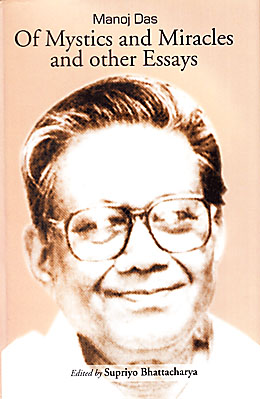 | Of Mystics and Miracles and other Essays
— Edited by Supriyo Bhattacharya ISBN: 978-93-84101-39-8 Publisher: Sagnik Books, Kolkata Binding: Hard Cover Pages: 376 Price: Rs 600 |
This collection of articles and transcribed talks by the creative writer Manoj Das offers the reader the opportunity to explore a different aspect of his writing. Solicited to speak by various institutions or organisations or asked to write by editors on any number of topics, the author shares his insights and perceptions on literature and education, mysticism and yoga, mythology and legends, social issues of the day, and some thoughtful pieces on a few great writers and Indian revolutionaries. Every essay evidences something of his style as a storyteller, and throughout these pages runs the stream of Sri Aurobindo’s thought and the influence it had on the author’s life and development. | |
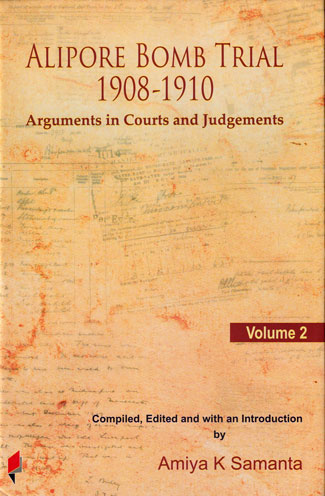 | Alipore Bomb Trial 1908–1910 (Volume 2)
Arguments in Courts and Judgements — Compiled, Edited and with an Introduction by Amiya K Samanta ISBN: 978-93-81043-27-1 Publisher: Frontpage, Kolkata Binding: Hard Cover Pages: 470 Price: Rs 1495 |
The second of two volumes bringing to light all the unpublished documents related to the Alipore Bomb Trial, this book deals with the arguments presented in the Sessions Court and the High Court and the judgements rendered in both. In the introduction, the editor revisits justice in colonial India, beginning with the East India Company’s efforts to protect colonial race relations. He argues that the bloodshed of the 1857 uprising made the British realise that a new and fair system of justice had to be implemented to quell the stirrings of a widespread revolt and cement the balance of power in favour of the colonial regime. The arguments and judgements presented demonstrate how far the principles of fair and impartial justice were actually adhered to.The epilogue details the British Government’s efforts to muzzle and condemn Sri Aurobindo and summarises the aftermath of the Alipore Bomb Trial in terms of how the authorities moved to tackle what they viewed as the problem of revolutionary terrorism. | |
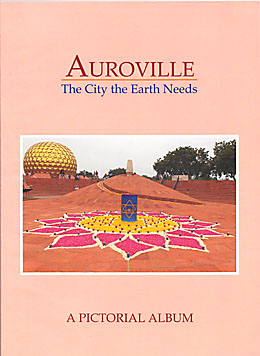 | Auroville: The City the Earth Needs
A Pictorial Album Publisher: Chandernagore Barasat Gate Cultural Association, Chandernagore Binding: Soft Cover Pages: 84 Price: Rs 250 |
A collection of photographs and texts was displayed at the Ashram’s Exhibition Hall to mark Auroville’s fiftieth anniversary in 2018. This book presents a selection of those photos and texts commemorating the founding of Auroville in February 1968 and the laying of the foundation stone for the Matrimandir in 1971. In the second part of the book, there are colour photographs of the flowers associated with the twelve Matrimandir gardens, the children of Auroville, and the Golden Jubilee celebrations, concluding with some experiences at the Matrimandir recorded by Champaklal and Nirodbaran. | |
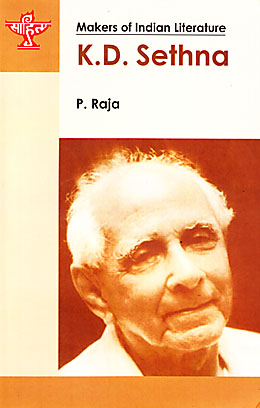 | K. D. Sethna
— P. Raja ISBN: 978-81-260-5283-7 Publisher: Sahitya Akademi, Delhi Binding: Soft Cover Pages: 77 Price: Rs 50 |
The author, a long-time associate of K. D. Sethna, writes of Sethna’s life and work with humour and evident affection. Sethna’s early interest in literature blossomed when he joined the Ashram and he wrote on subjects as varied as ancient Indian history, Christology, comparative mythology, overhead poetry, international affairs, philosophy, mysticism, spiritual and scientific thought, modern physics and biology, and studies on Blake and Shakespeare. He matured into a fine poet under Sri Aurobindo’s mentorship and had an extended correspondence with him on his epic poem Savitri. Author of more than fifty books, including The Poetic Genius of Sri Aurobindo, he was also the editor of the Mother India journal for more than fifty years. | |
ENGLISH/TELUGU | |
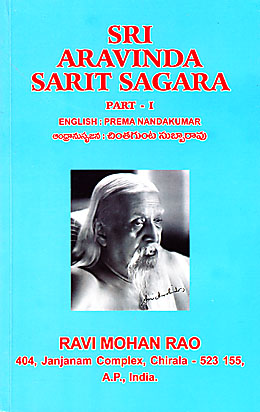 | Sri Aravinda Sarit Sagara
Part 1 — Prema Nandakumar Publisher: Ravi Mohan Rao, Chirala Binding: Soft Cover Pages: 620 Price: Rs 300 |
In Part I of this bilingual volume the author has written an introductory essay on the life and work of Sri Aurobindo followed by sets of three essays on themes central to each of the first fifteen volumes of the Sri Aurobindo Birth Centenary Library (1972). A Telegu translation of these essays appears in the second half of the book. Apparently, Part II will cover the second fifteen volumes. Although the Sri Aurobindo Birth Centenary Library (SABCL) edition of Sri Aurobindo’s writings is now out of print, these essays can be read profitably for the relevant volumes that form part of the Complete Works of Sri Aurobindo, which includes all of the works published in the SABCL and around 3000 pages of previously unpublished material. | |
ITALIAN | |
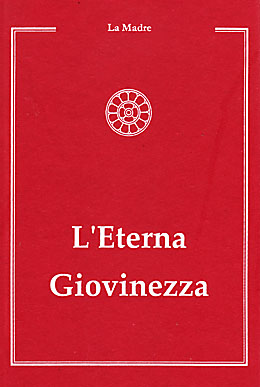 | L'Eterna Giovinezza
— La Madre ISBN: 978-93-5210-164-1 Publisher: Domani, Pondicherry Binding: Soft Cover Pages: 45 Price: Rs 120 |
La Madre dice: “Essere giovani è vivere nel futuro. Essere giovani è essere sempre pronti a rinunciare a ciò che siamo per diventare ciò che dobbiamo essere” La chiave dell’eterna giovinezza sta quindi nel mai rinunciare al Progresso. | |
HINDI | |
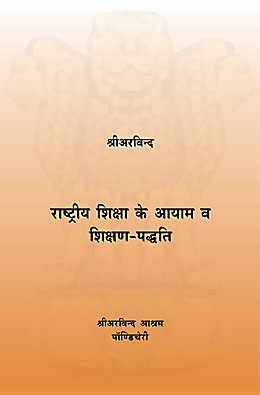 | Rashtriya Shiksha ke Aayam va Shikshan-Paddhati
— Sri Aravind ISBN: 978-93-5210-131-3 Publisher: Sri Aurobindo Ashram Publication Department, Pondicherry Binding: Soft Cover Pages: 101 Price: Rs 65 |
Hindi translation of A System of National Education | |
BENGALI | |
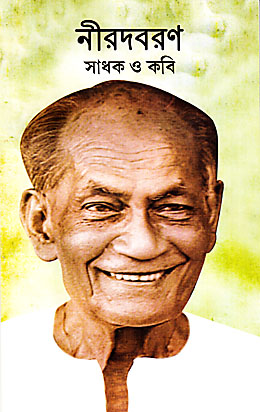 | Nirodbaran: Sadhak O Kabi
— Edited by Arabinda Basu and Romen Sengupta Publisher: Srinvantu Spiritual Trust, Kolkata Binding: Soft Cover Pages: 66 Price: Rs 50 |
| |
GUJARATI | |
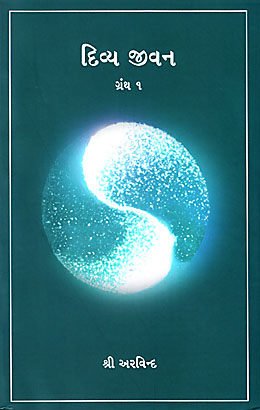 | Divya Jeevan - Volume I
— Sri Aravind ISBN: 978-93-5210-153-5 Publisher: Sri Aurobindo Ashram Publication Department, Pondicherry Binding: Soft Cover Pages: 426 Price: Rs 225 |
Gujarati translation of The Life Divine: Book One | |
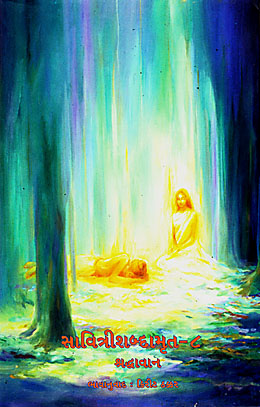 | Savitri Shabdamrut - 8
— Shraddhavan Publisher: Yoga-Yukta Prakashan, Vadodara Binding: Soft Cover Pages: 543 Price: Rs 200 |
| |
TAMIL | |
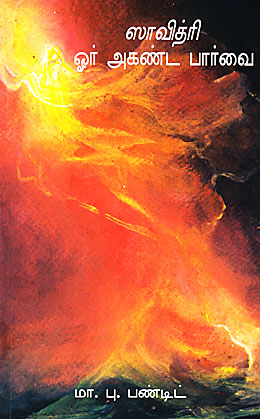 | Savitri: Oru Aganda Parvai
— M. P. Pandit ISBN: 978-81-7509-138-2 Publisher: Dipti Publications, Pondicherry Binding: Soft Cover Pages: 93 Price: Rs 100 |
| |
TELUGU | |
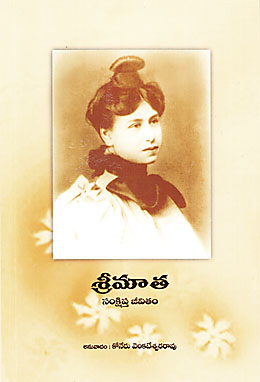 | Sri Mataji (Sankshipta Jeevitam)
— Wilfried ISBN: 978-81-7060-364-1 Publisher: Sri Aurobindo Society, Pondicherry Binding: Soft Cover Pages: 98 Price: Rs 60 |
Telugu translation of The Mother: A Short Biography Description of content for original work: | |
TELUGU/ENGLISH | |
 | Sri Aravinda Sarit Sagara
Part 1 — Prema Nandakumar Publisher: Ravi Mohan Rao, Chirala Binding: Soft Cover Pages: 620 Price: Rs 300 |
| |
KANNADA | |
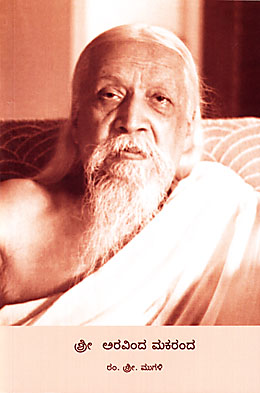 | Sri Aravinda Makaranda
— Dr R. S. Mugali ISBN: 978-93-5210-124-5 Publisher: Sri Aurobindo Ashram Publication Department, Pondicherry Binding: Soft Cover Pages: 328 Price: Rs 125 |
| |
You have received this as a subscriber to SABDA eNews. To unsubscribe, click here. To view previous issues of SABDA eNews, visit our Newsletters page.
|